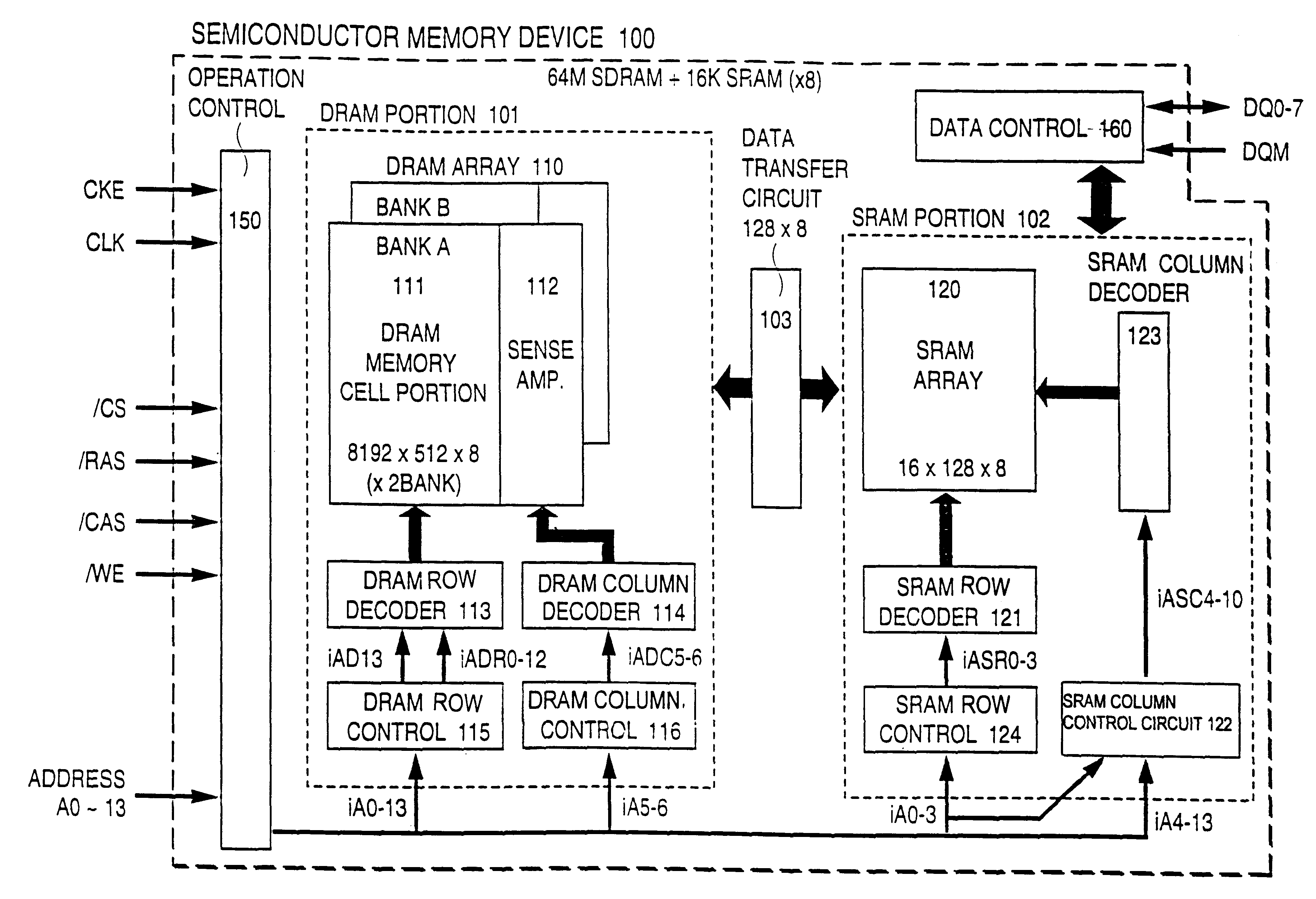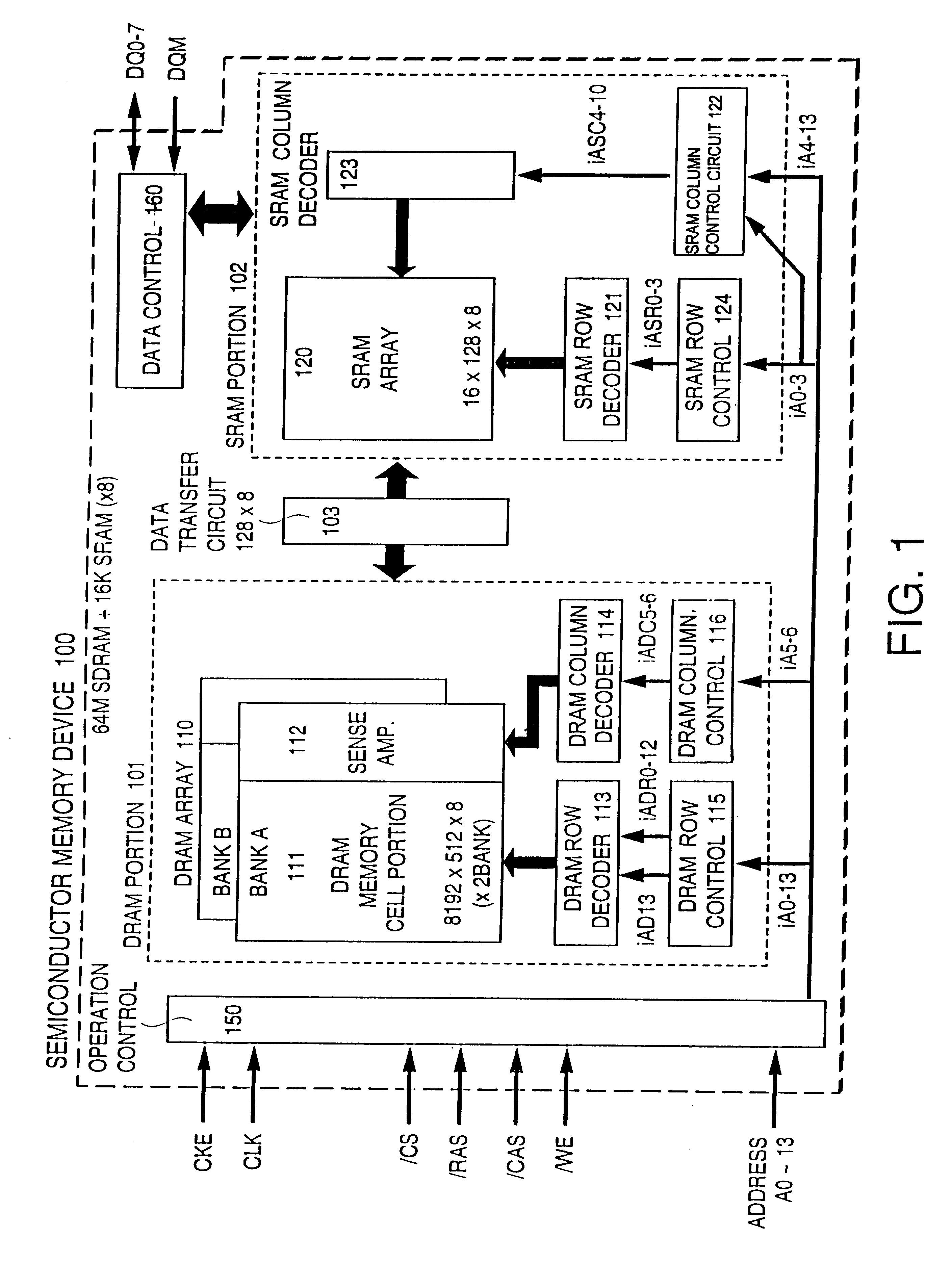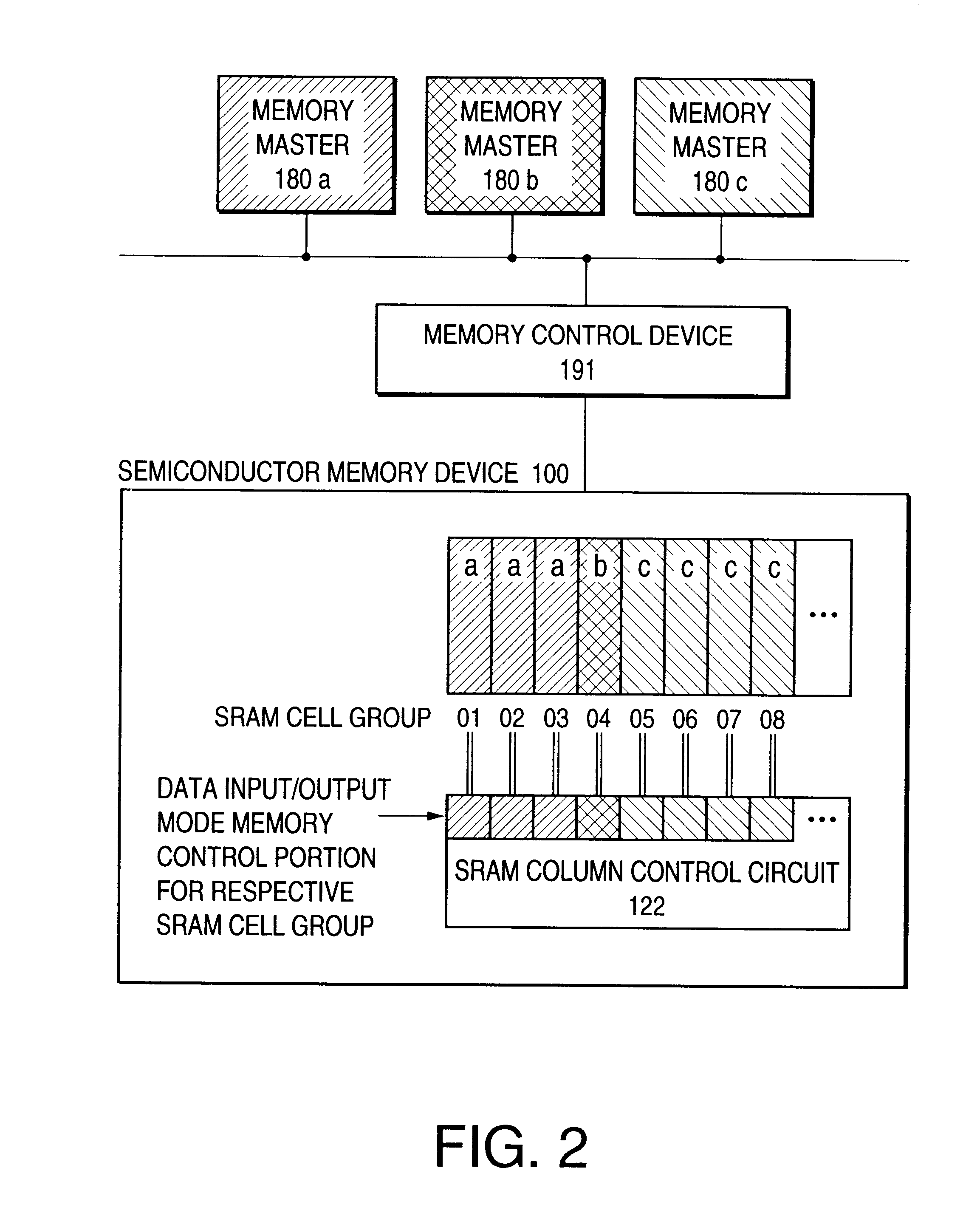Semiconductor memory including main and sub memory portions having plural memory cell groups and a bidirectional data transfer circuit
a technology of memory cell and integrated circuit, which is applied in the direction of memory adressing/allocation/relocation, digital storage, instruments, etc., can solve the problems of large number of external pin terminals compared with the number of a single dram, the operation speed of the dram is still insufficient, and the delay of data transfer operation
- Summary
- Abstract
- Description
- Claims
- Application Information
AI Technical Summary
Benefits of technology
Problems solved by technology
Method used
Image
Examples
Embodiment Construction
of the Respective Blocks
The respective circuit blocks of the overall block diagram shown in FIG. 1 will be described in detail. It should be noted that the following description is for a mere embodiment and this invention is not limited thereto.
1. {Operation Control Circuit}
FIG. 54 is a circuit diagram of the operation control circuit 150.
The operation control circuit 150 is constructed with an internal clock generator circuit 410, a command decoder 420, a control logic 430, an address control circuit 440 and a mode register 450.
The internal clock generator circuit 410 generates an internal clock signal iCLK from the external input signals CLK and CKE.
The internal clock signal ICLK is supplied to the command decoder 420, the control logic 430, the address control circuit 440 and the data control circuit to control the timing of the respective portions.
The command decoder 420 includes a buffer 421 for receiving the respective input signals and a command judge circuit 422. The / CS sig...
PUM
 Login to View More
Login to View More Abstract
Description
Claims
Application Information
 Login to View More
Login to View More - R&D
- Intellectual Property
- Life Sciences
- Materials
- Tech Scout
- Unparalleled Data Quality
- Higher Quality Content
- 60% Fewer Hallucinations
Browse by: Latest US Patents, China's latest patents, Technical Efficacy Thesaurus, Application Domain, Technology Topic, Popular Technical Reports.
© 2025 PatSnap. All rights reserved.Legal|Privacy policy|Modern Slavery Act Transparency Statement|Sitemap|About US| Contact US: help@patsnap.com



